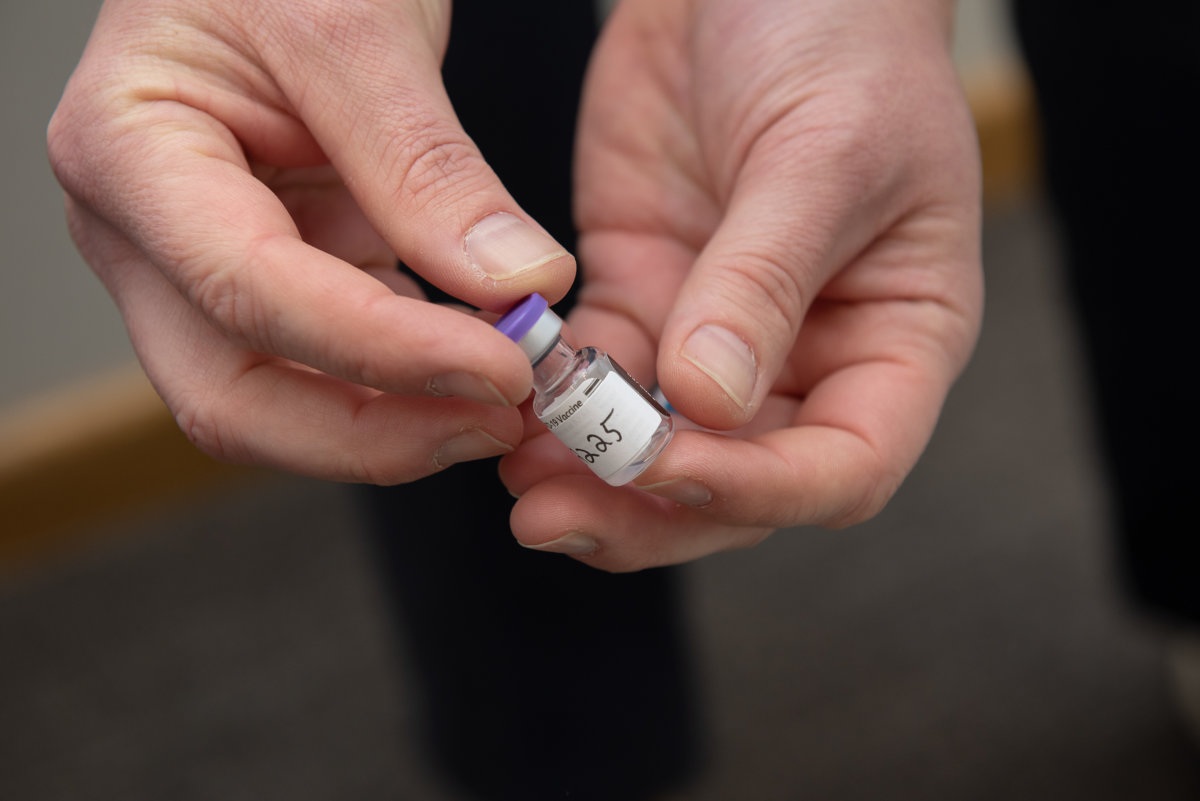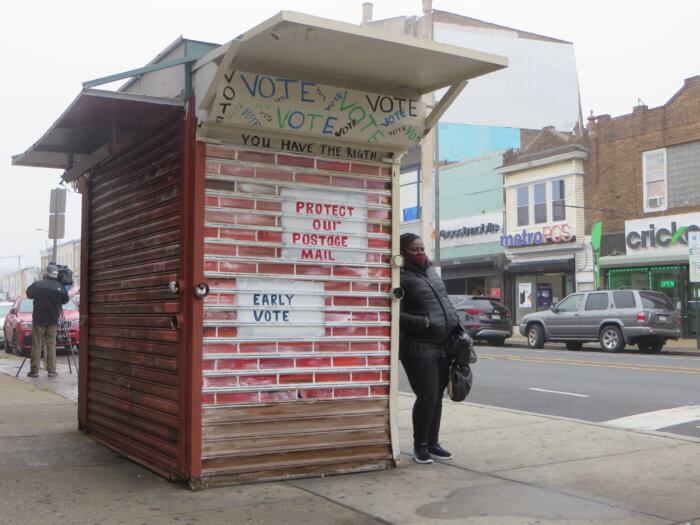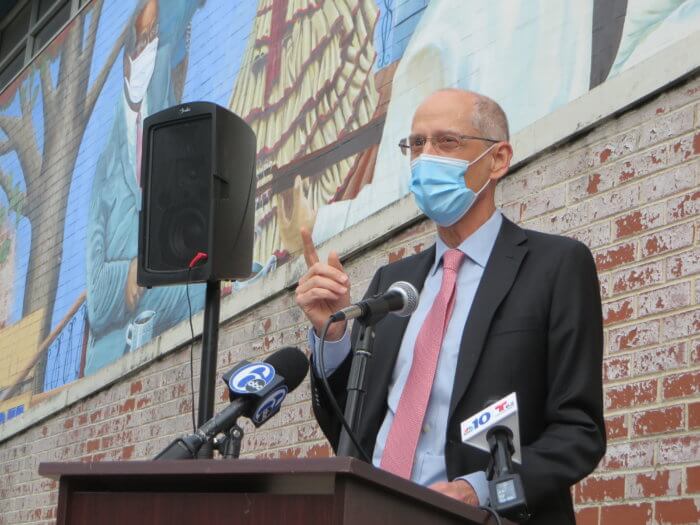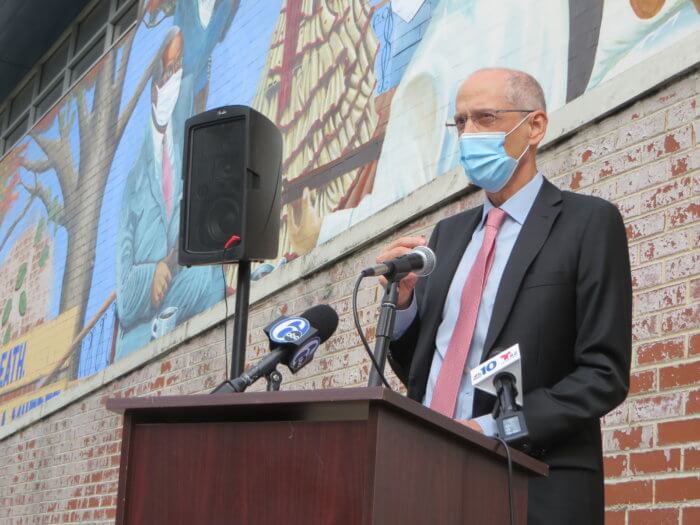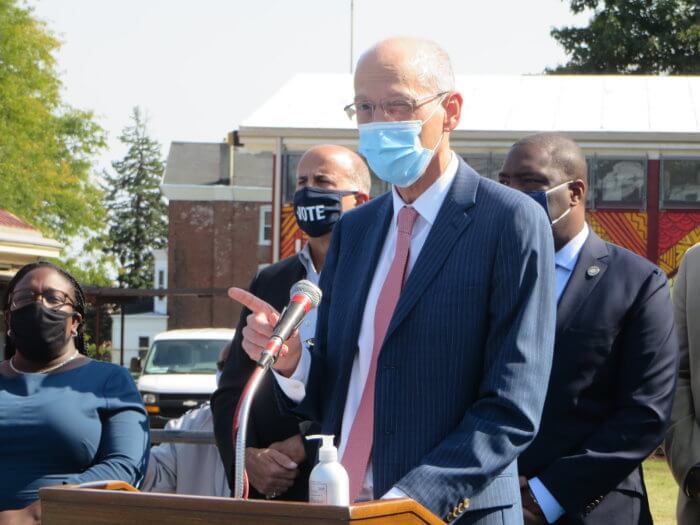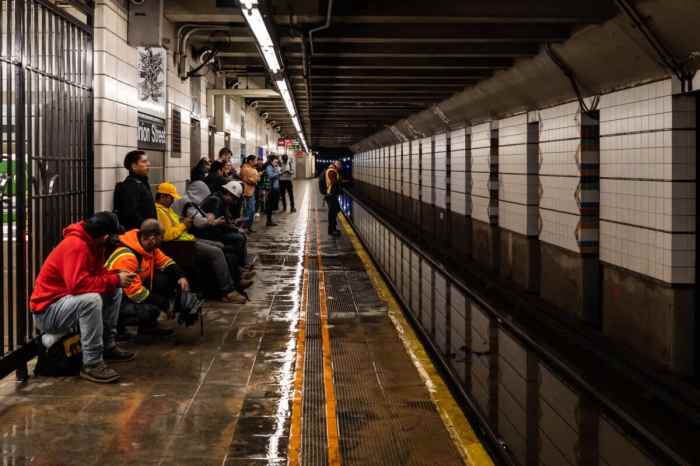Local and state health officials on Tuesday stressed the need for improved communication with the federal government over COVID-19 vaccine distribution, as President Donald Trump’s administration proffered new guidelines that would significantly alter the roll-out.
Philadelphia released its categories of people who will be included in the second phase of the vaccination campaign, a group that, unlike the state plan, includes people with chronic medical conditions.
In addition, city leaders announced Tuesday that restaurants will be able to offer indoor dining and theaters will be allowed to reopen this weekend.
Dining rooms at restaurants, which were shuttered Nov. 20, will be permitted to open at 25% of their seated capacity starting on Saturday. Tables can have a maximum of four chairs, and servers must wear masks and face shields.
Most other areas of Pennsylvania have allowed indoor dining since Jan. 4, when state measures expired, and eateries there can open at 50% if they complete a self-certification process.
“We are trying to strike a balance between protecting people from COVID and limiting the downsides of these restrictions,” Health Commissioner Thomas Farley said Tuesday.
Theaters can open at 10% capacity with no food or drinks, and colleges will be allowed to resume in-person classes.
Indoor catered events and private indoor gatherings, which Farley said are a major force behind the spread of the virus, remain prohibited.
Officials also unveiled, for the first time, details on what Phases 1B and 1C of vaccine distribution will look like in Philadelphia.
Farley said the Phase 1B will likely begin later this month, possibly as early as Jan. 25.
It will incorporate residents ages 75 and older; police officers and firefighters; SEPTA workers; food distribution, preparation and service employees; people living and working in congregate living facilities; retail workers; teachers and education-related employees and workers manufacturing critical goods.
The main deviation from the state plan and federal recommendations is the inclusion of residents with underlying medical conditions.
In the city’s plan, those include cancer, chronic kidney disease; COPD; heart conditions; weakened immune system from organ transplant; obesity; sickle cell disease; type 2 diabetes; and smoking.
“These medical conditions are common in low income populations and minority populations,” Farley said. “This is one way for us to address the racial disparity in COVID mortality here in Philadelphia.”
Other essential workers and people between the ages of 65 and 74 will be vaccinated in Phase 1C of the city’s plan, which was developed by a local vaccine advisory board.
Doses will be administered at a variety of sites, such as hospitals, health centers, occupational clinics, pharmacies, urgent cares, doctor’s offices and mass vaccination clinics, according to Farley.
Philadelphia is slated to receive $14 million in federal stimulus money to fund vaccine roll-out.
Farley and Pennsylvania Health Secretary Rachel Levine said the biggest hurdle in the vaccination campaign remains a lack of communication from Operation Warp Speed, a federal partnership overseeing distribution.
A total of 19,000 doses of the Pfizer-BioNTech and Moderna vaccines are expected to arrive in the city this week, and local leaders have been told to expect similarly-sized weekly shipments for the rest of the month.
“We have no idea how many doses we will receive on a weekly basis after January,” Farley said. “That uncertainty makes it very difficult for us to plan.”
The more details states receive, “the better we can prepare,” Levine said. Pennsylvania’s allotment for this week is nearly 138,000 doses.
Just over 50,000 people in Philadelphia have received their first injection, and 9,600 have received both doses. Farley said the city has used 55% of its delivered vaccines, much higher than the national average.
An additional 311,477 doses have been administered in Pennsylvania outside of the city.
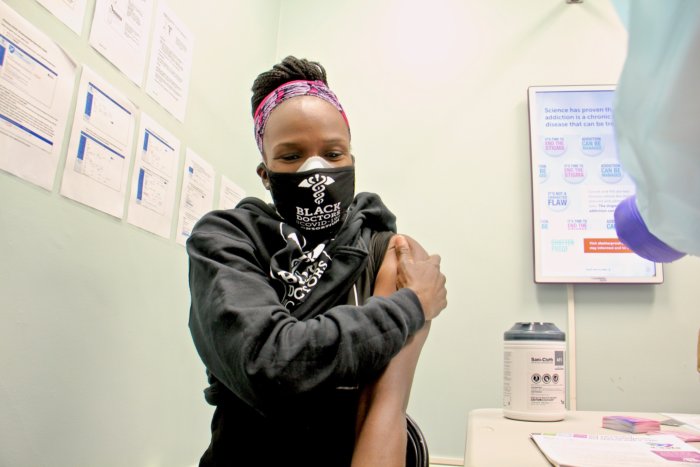
Trump administration officials said Tuesday that they plan to speed up vaccinations by releasing millions of doses that have been held in warehouses to ensure everyone who receives their first shot can get a second.
A similar plan had been floated by President-Elect Joe Biden’s transition team.
Robert Redfield, the director of the Centers for Disease Control and Prevention, also said he “strongly recommends” states and localities begin immunizing the over-65 population and people with chronic conditions, according to Reuters.
Levine said Tuesday afternoon that she had yet to read specifics on the new guidelines. Finding the right balance between speed and getting vaccines to the people who need them most will be key, she added.
“We will certainly study and look at the impact upon Pennsylvania, and we will follow federal guidance,” she said.
Farley, too, expressed caution, worrying that some people may not be able to get their second dose on time if vaccine stockpiles run low.
So far, the federal government has kept one vaccine in storage for everyone one sent out, scheduling it to be shipped 21 or 28 days later, depending on the vaccine.
Philadelphia’s health commissioner also said he was concerned that opening up the vaccine pool to anyone over 65 could lead to inequitable access, with people with more resources or connections getting inoculated first.
“That’s not the way that you save the most lives,” Farley said. “There’s a reason for the priority system, and that is to try to save as many lives as possible.”
Gov. Tom Wolf appeared at a virtual press conference Tuesday to push a message that the COVID-19 vaccines are safe and effective.
“I’m going to get the vaccine, and I can’t wait,” said Wolf, who has maintained that he won’t ‘jump in line’ to get the injection.
The governor encouraged people to fact-check any claims and rumours circulating about the vaccines.
Dr. Cynthia Chuang, head of general internal medicine at Penn State’s Hershey Medical Center, who spoke at the briefing, said people should expect some mild side effects, including injection site soreness and redness, a low-grade fever, tiredness and aches.
Those reactions are common and short-lived, she added, and severe allergic reactions to the shots are very rare.



